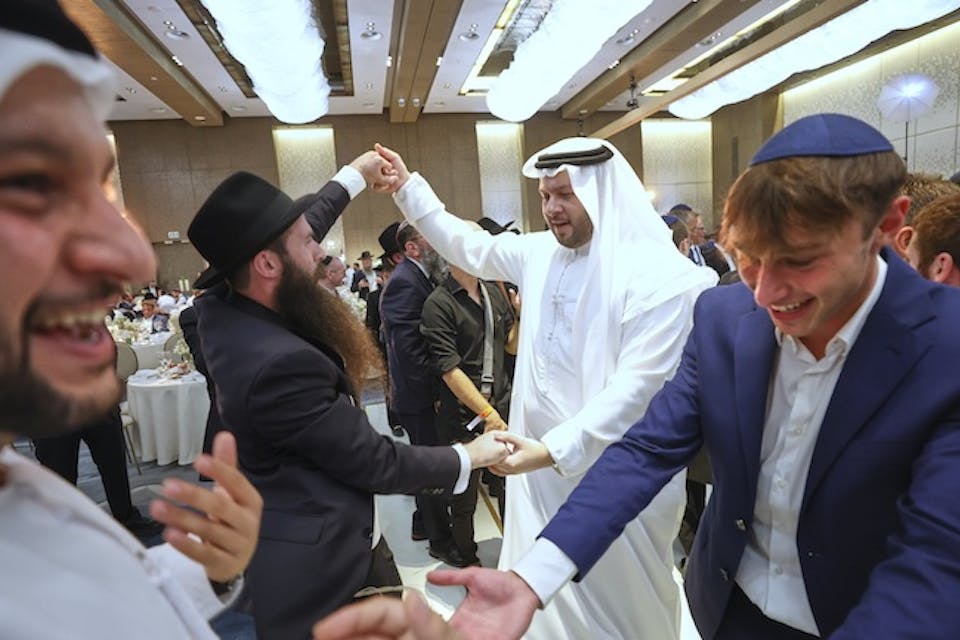
October 14, 2022
The Wedding Canopy in Abu Dhabi
By Rabbi Meir SoloveichikThere’s no better symbol for the Abraham Accords than a remarkable Jewish wedding in Abu Dhabi.
It was a video that went viral in the Orthodox Jewish world. Levi Duchman, a young Chabad rabbi ministering to the growing Jewish community in the United Arab Emirates, was married to Leah Hadad in the middle of September, one week before Rosh Hashanah. The ritual was traditional, and Hasidic, and centered, like all Jewish weddings, around a chuppah, a wedding canopy. But the occasion was, from a historical perspective, extraordinary: It was held in Abu Dhabi, the 1,500-person guest list made up of both Jews and Arabs, including Emirati royalty, with rabbis arriving from Israel, America, and Morocco. It was the largest Jewish event ever held in the Gulf Region.
One video captures a moment after the chuppah ceremony: the dancing with the groom in which all engage. As Jewish music is played and sung, we see Rabbi Duchman, a Hasid clad in kapote and black hat, dancing in the center of the circle with an Emirati Arab guest, wrapped in his own traditional white thobe and headdress, with similarly clad Hasidim and Arabs surrounding them, holding hands and revolving to the rhythm, the white robes and black frocks blending together, creating a moving mosaic of friendship and faith. When the video was first sent to me, I stared at it. Had I seen it 10 years ago, I would have assumed that it was a scene from a movie comedy, so incongruous did the pairings seem. Yet the video is real, the scene is real, the warmth and the joy of all those dancing together are real. And the date for the wedding was deliberately chosen by bride and groom: September 15, the second anniversary of the signing of the Abraham Accords.
It is a fitting testimony to all that has been achieved since the Accords were first signed: a wedding marked by the one Diaspora Jewish community on earth that, as Rabbi Duchman proudly notes, can now receive kosher Israeli goods directly by truck from the State of Israel, in a country whose relationship with the Jewish state only continues to develop.